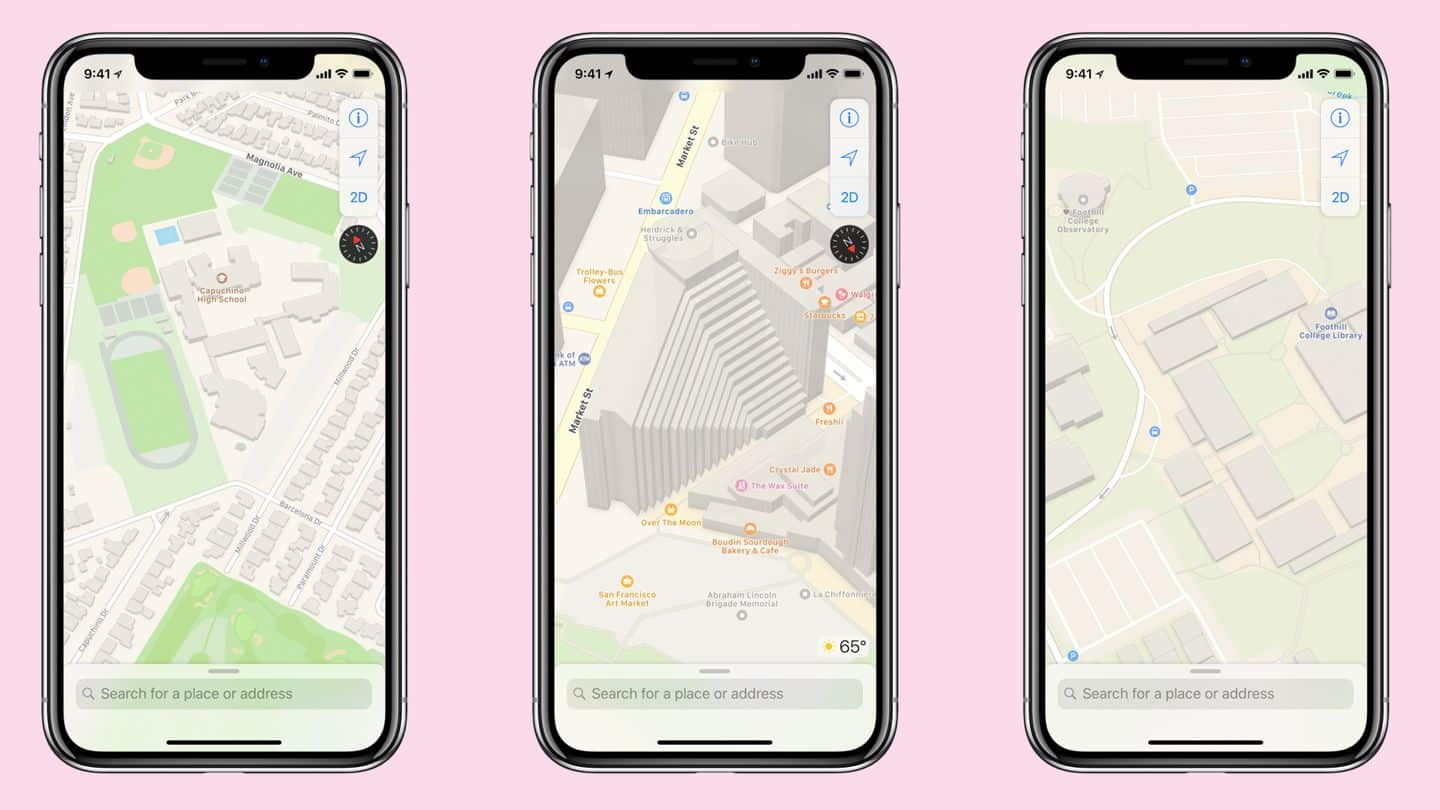
Apple is rebuilding Maps using its own data mapping technology
What's the story
According to reports, Apple is overhauling Apple Maps and rebuilding it using its own data. So far, Apple has been licensing data from well-known third-party mapping companies like TomTom and OpenStreetMap but has always run into reliability issues with them. Now, the tech giant will use the information it has been gathering itself to offer a new Apple Maps to users.
In-house tech
Apple collecting data from vans and iPhones
To collect mapping data, Apple is relying on its sensor-packed vans that are being driven around the US and iPhones that'll help the company gather information on user travel and be updated about real-time traffic. By building its own maps, Apple can better control features like walking and public transit and roll out changes faster without having to work with a third party.
Limited access
New Maps will slowly roll out in US over 2019
Starting next week, the new Apple Maps will foremost become available on iOS 12 beta with detailed navigational information of the San Francisco Bay Area. When iOS 12 globally launches, Maps' range will expand to Northern California. Eventually, it will come to all versions of iOS and work on Apple Watches and MacBooks as well. There is no word on an international roll-out.
Information
The effort was four years in the making
Apple Maps will change in look and feel. Users will see more detailed parks, waterways, and parking lots. Addresses will get more precise and walking directions more accurate. To make Maps easier to read, Apple will even replicate the font used on real-life street signs.
Competition
Rebuilding Maps into a competitive product
According to Creative Strategies, 45% of US iPhone users used Google Maps, 18% used Google's Waze app, and 36% used Apple Maps last year. Apple claims that its Maps is the most-used mapping app on iOS, which could probably be due to China where Google Maps doesn't work. Apple Maps was launched in 2012 and Google Maps has been live for over a decade.
Information
Apple has hugely invested in getting Maps up to par
Apple Maps will at least be more secure than Google Maps. The company doesn't save your location history and also encrypts the data collected by its mapping vans. The data about which route you're going to take is also anonymized before it's sent to Apple.